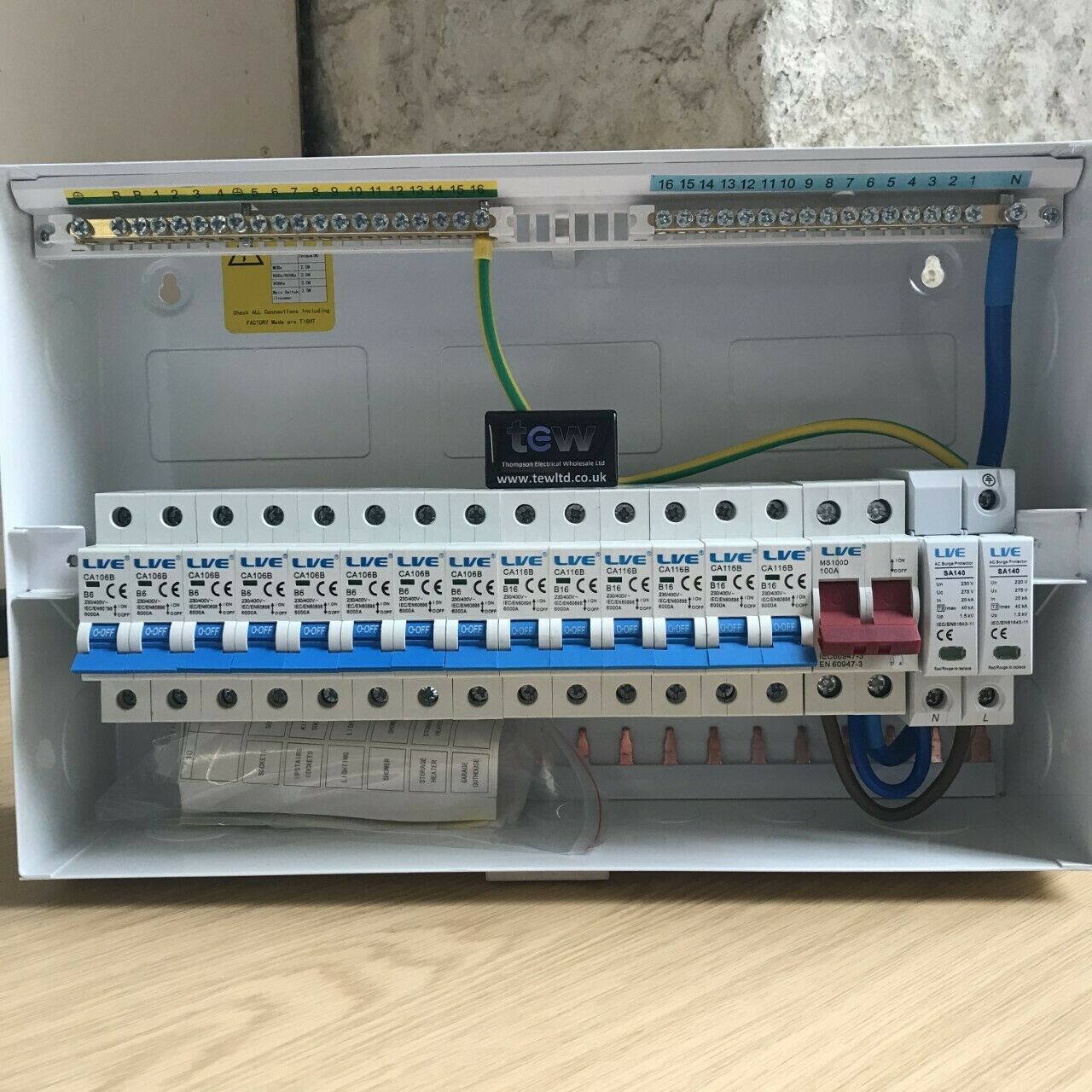The Duty of Consumer Units in Efficient Power Administration Systems
Customer systems are important to effective energy management systems, serving as the primary circulation factors for electric power within structures. The advent of clever modern technologies has actually further improved their functionality, enabling for real-time data surveillance and nuanced energy intake evaluation.
Recognizing Consumer Devices

Recognizing the function of consumer units starts with identifying their vital feature in protecting electric systems. By separating mistakes within particular circuits, customer units prevent prevalent failures and possible fire dangers. This isolation is achieved via the usage of circuit breakers that trip or integrates that impact when a fault is spotted, thereby removing the electric flow to the influenced circuit.
Additionally, consumer devices assist in the orderly distribution of power, boosting the effectiveness of energy usage. They enable the organized administration of electric lots, which can be especially essential in commercial and industrial setups where need can fluctuate significantly. Effectively maintained consumer devices contribute to the long life of electrical systems and aid in minimizing downtime triggered by electrical failings, eventually supporting the smooth operation of energy-dependent centers.
Smart Technologies Integration

A key benefit of smart customer units is their capacity to take advantage of progressed algorithms and equipment knowing for anticipating analytics. This enables for preemptive modifications based on usage patterns, weather prediction, and other variables, substantially increasing overall effectiveness. Wise customer devices help with need feedback programs, where power use can be dynamically readjusted during peak periods to support the grid and lower costs.
The combination of eco-friendly energy resources, such as solar and wind, is additionally structured through smart customer systems. By intelligently taking care of the intermittency of these resources, these devices guarantee a well balanced and trustworthy power supply. Furthermore, smart customer units enhance customer interaction by providing thorough understandings and push-button control capabilities through mobile applications, fostering a more positive approach to energy preservation and sustainability.
Monitoring Energy Consumption
Building on the capacities of wise innovations assimilation, checking energy usage ends up being an essential focus within power management systems. Efficient monitoring functions as the foundation for identifying energy ineffectiveness and carrying out restorative measures. By leveraging sophisticated metering facilities (AMI), real-time data on power usage can be collected at granular levels, offering valuable understandings into intake patterns and check these guys out peak need periods. This data-centric technique allows both customers and power managers to make informed decisions focused on reducing waste and enhancing total performance.
Smart meters and Internet of Things (IoT) gadgets play a pivotal role in this surveillance process. These tools can track energy use in real-time, transferring data to centralized systems for evaluation.
The integration of these innovations not only empowers consumers with thorough information about their energy use yet additionally supports energy suppliers in managing tons distribution extra properly. Inevitably, constant and accurate surveillance is vital for accomplishing energy performance, cost financial savings, and sustainability goals within energy management systems.
Optimizing Appliance Usage

One effective method involves recognizing optimal and off-peak hours to shift energy-intensive activities, such as washing or dishwashing, to times when energy need is lower. This not only reduces strain on the grid but likewise maximizes reduced power tolls. In addition, incorporating machine knowing formulas enables predictive upkeep, making sure devices operate at optimal efficiency and extending their lifespan.
Energy management systems can additionally integrate user-specific preferences and actions to tailor device usage timetables. Smart lights systems can adjust illumination based on occupancy and natural light schedule, while A/c systems can maintain comfort degrees without extreme power usage.
Encouraging Sustainability
Promoting sustainability within energy monitoring systems entails not only boosting efficiency however additionally fostering eco responsible methods. Customer devices are important to this process, as they provide real-time data and control mechanisms that enable customers to check and lower their power usage. By leveraging sophisticated technologies, customer units can identify energy-saving chances and facilitate the assimilation of renewable energy sources like solar and wind power.
One essential aspect of promoting sustainability is enlightening consumers on the benefits of accountable power use. With thorough insights provided by consumer units, individuals can make educated choices that minimize their carbon footprint. These units can recommend ideal times for running high-energy home appliances based on grid demand and eco-friendly energy schedule, therefore reducing dependence on fossil gas.
Furthermore, consumer why not try these out devices support the fostering of smart grid technologies, which improve the total performance and dependability of energy distribution. By making it possible for two-way communication between customers and energy companies, these systems can dynamically readjust to power needs, decreasing waste and promoting the usage of lasting energy techniques.
Conclusion
Consumer units, as important elements of power management systems, considerably improve electrical security and effectiveness within structures through circuit protection and clever modern technology assimilation. Real-time information surveillance and analysis helped with by these systems enhance energy usage and device use. In addition, the consolidation of sustainable energy sources promotes sustainable methods, adding to minimized general power usage and reduced carbon footprints. Consequently, customer systems play a crucial role beforehand both energy efficiency and environmental sustainability.
Breakthroughs in wise read this post here modern technologies have changed the abilities of power monitoring systems, especially via the combination of wise consumer devices.Building on the capabilities of smart technologies integration, monitoring power intake becomes an important focus within energy monitoring systems.Reliable appliance usage optimization is a critical component of power management systems, intending to enhance effectiveness and minimize unnecessary power intake.Consumer devices, as important components of energy management systems, dramatically boost electrical security and efficiency within buildings through circuit security and smart technology integration. Furthermore, the consolidation of eco-friendly power sources promotes lasting techniques, adding to minimized general power intake and lower carbon impacts.